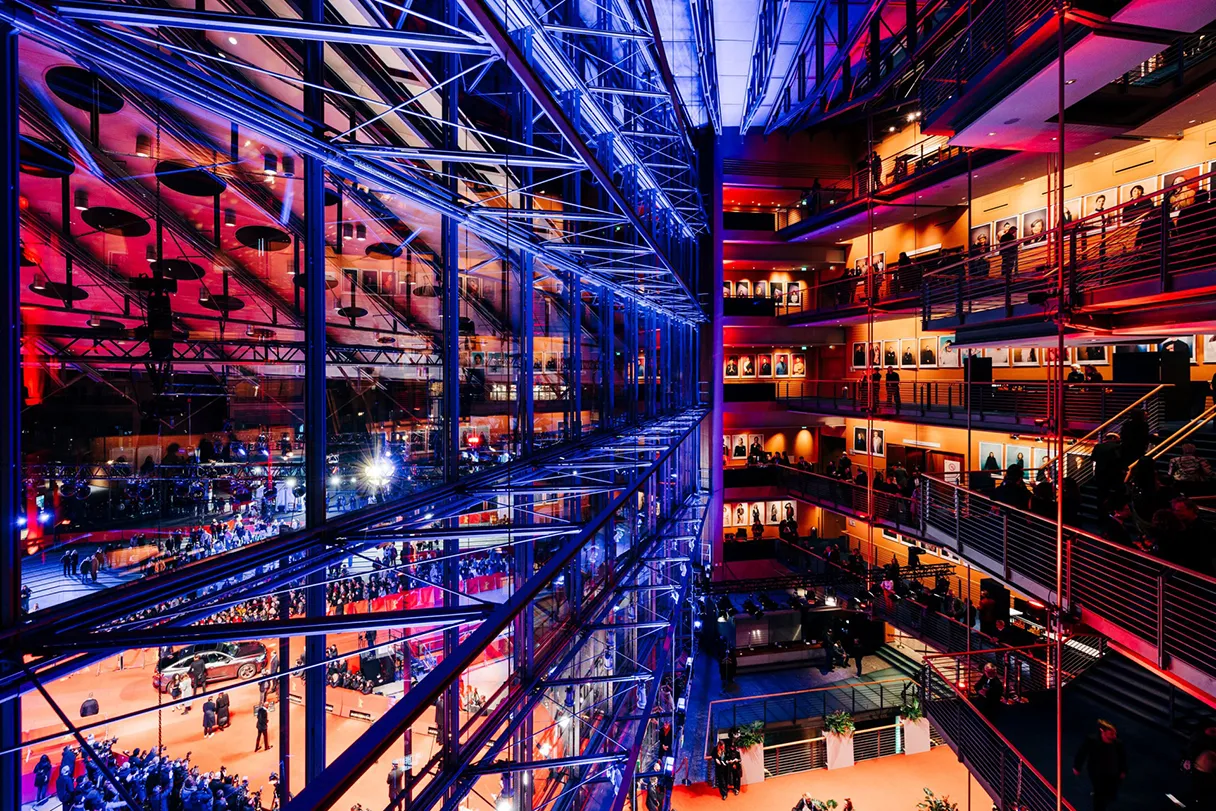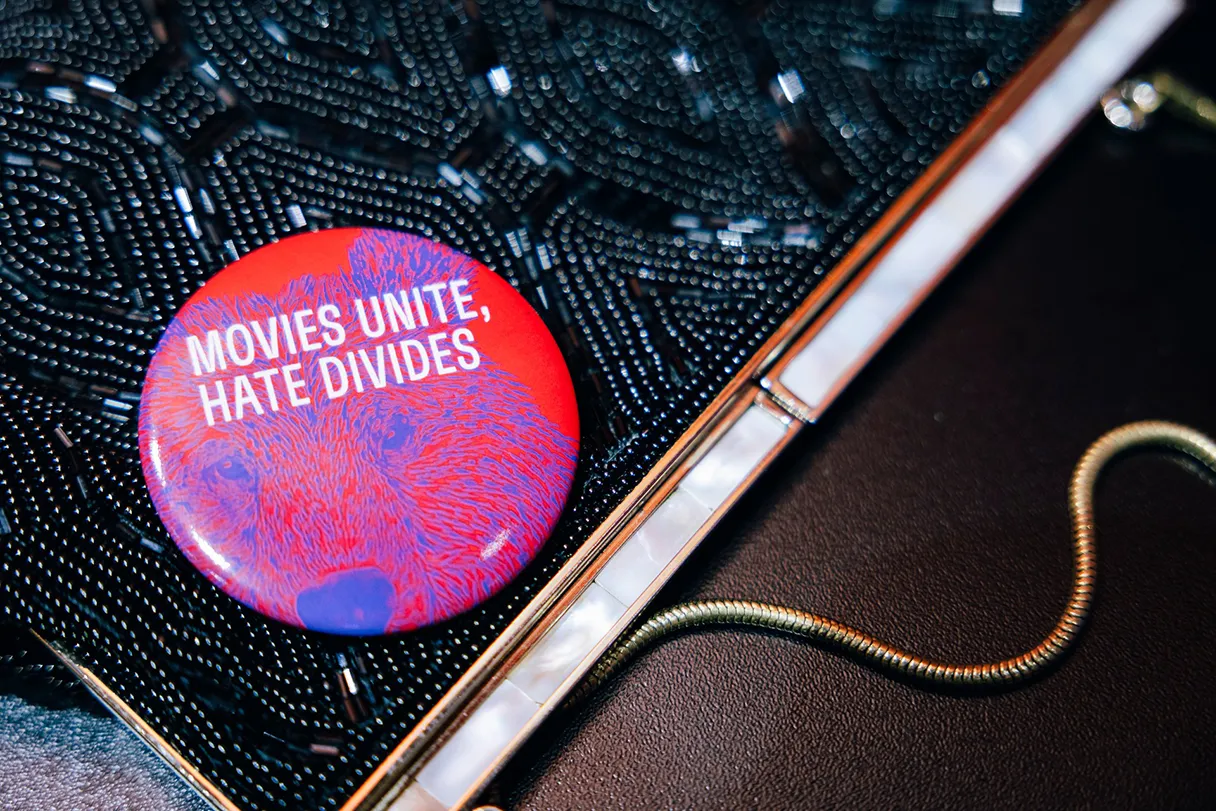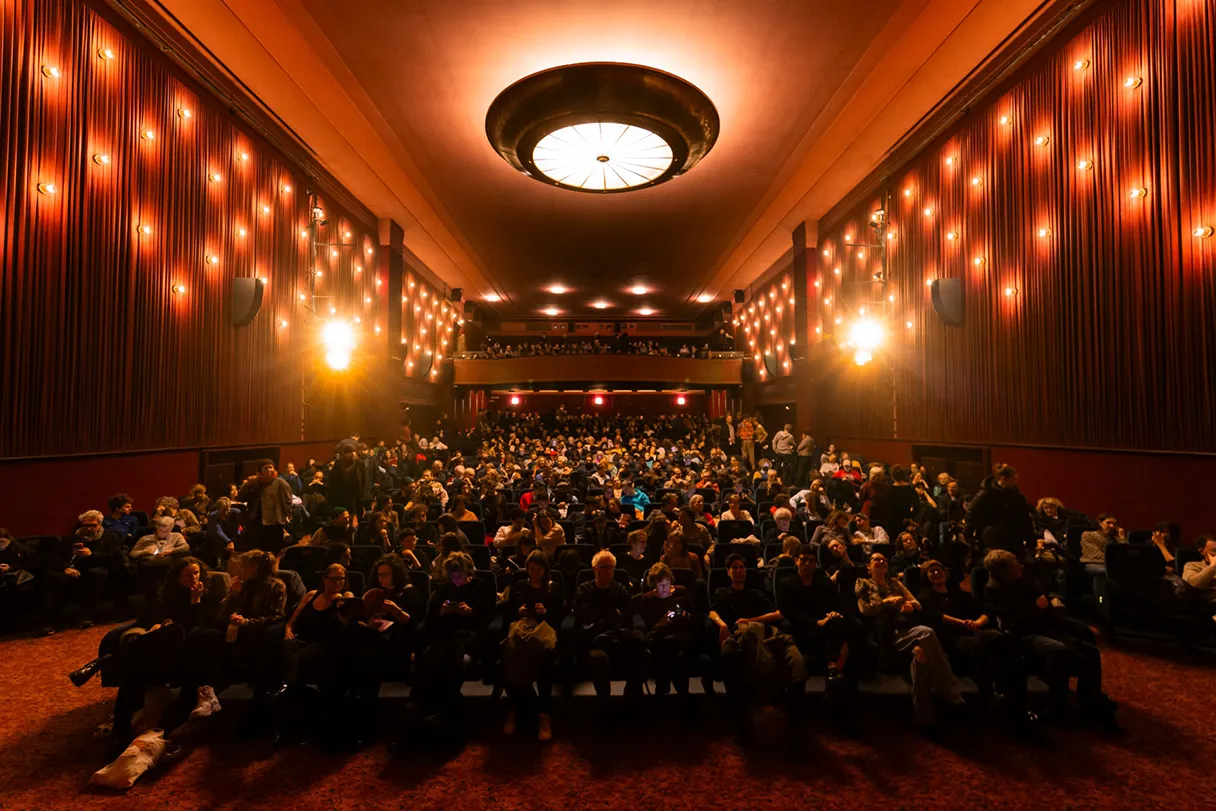 Photo: by Berlinale
Photo: by Berlinale
Berlinale in Germany
Every year in February, Berlin transforms into the center of the international film world. The Berlinale, one of the most renowned film festivals in the world, attracts stars, cineastes, and industry insiders alike to the capital. But what makes this festival so special? A look at the history, current highlights, and the little scandals that always accompany the Berlinale.
- A moving story
- 2026 - what can we expect?
- Scandals
- How do you get Berlinale tickets?
- How much do Berlinale tickets cost?
- Where does the Berlinale take place?
1. A moving story
The Berlin International Film Festival was founded in 1951 and has since established itself as one of the most important film festivals alongside Cannes and Venice. Founded in the post-war period, the festival was intended to present Berlin as a cultural showcase of the West. Since then, film legends such as Alfred Hitchcock, Sophia Loren, and Quentin Tarantino have presented their works here.
The fall of the Berlin Wall was particularly formative: the Berlinale was reunited in 1990 and since then the festival has continued to grow - both in importance and in the diversity of its program.
A central figure in the history of the Berlinale was undoubtedly Dieter Kosslik, who headed the event as Festival Director from 2001 to 2019. Under his aegis, the Berlinale gained further international prestige and became more political and diverse. He introduced new sections, strengthened the focus on arthouse productions, and specifically promoted up-and-coming talent. His charming but also polarizing manner made him a cult figure in festival history. He was “Mister Berlinale”. No red carpet without Dieter Kosslick: in wind and weather, with a red scarf, hat, and good humor.
2. Berlinale 2026 - what can we expect?
Every year, the festival offers a mixture of international blockbusters, innovative arthouse cinema, and socially relevant documentaries. The sections range from the Competition, in which the Golden and Silver Bears are contested, to the Panorama series with courageous indie productions and the Berlinale Special Gala, which often attracts prominent guests. The festival also offers a platform for up-and-coming talent with Berlinale Talents, which brings together young filmmakers, screenwriters, and producers worldwide.
 Photo: Berlinale
Photo: Berlinale
The 76th Berlin International Film Festival will take place from February 12 to 22, 2026. A special highlight in 2026: award-winning director Wim Wenders will chair the International Jury and, together with the jury, decide on the winners of the Golden and Silver Bears.
"Wim Wenders is one of the most influential voices in international cinema. For six decades, he has made films that move and delight us with their humanity and sense of wonder. His insatiable curiosity and deep mastery of film language are evident in every work, whether he is exploring the gifts of other artists or illuminating our own search for meaning and connection. To say we are proud of this homegrown polymath is an understatement, and we cannot wait to see where jury president Wim Wenders leads our jury in picking the Golden and Silver Bear winners of the 76th Berlinale”, says Berlinale Director Tricia Tuttle."
The complete program overview with all screening times and venues will be published at the beginning of February 2026.
3. Scandals
No major film festival without a stir! The Berlinale has had some memorable scandals over the years:
- In 1986, the controversial film “Der Himmel über Berlin” by Wim Wenders was almost not shown due to internal disputes over the festival management.In 2006, the competition entry “Shortbus” by John Cameron Mitchell caused a stir because it showed unadorned sex scenes.In 2018, the Golden Bear was awarded the controversial film “Touch Me Not” by Adina Pintilie, which divided many viewers with its experimental narrative style.
 Photo: Berlinale
Photo: Berlinale
4. How do you get Berlinale tickets?
The demand is enormous every year. If you want to be there, you should follow these tips:
- Online sales: Tickets can be purchased online and always 3 days in advance from 10:00 am (e.g. on Monday for Thursday) and can be booked, subject to availability, up to the start of the performance - the coveted performances are often sold out in minutes, so it pays to be quick.
- Advance booking offices: In addition to online sales, there are various booking offices in Berlin (e.g. theater box offices) where tickets can be purchased. A maximum of 2 tickets can be purchased per person and performance. Up to 5 tickets can be purchased for performances in the Generation category.
- Last-minute tickets: If you are flexible, you can enquire about the remaining tickets at the box office one hour before the start. It is also worth checking online shortly beforehand, as remaining tickets are often released.
5. How much do Berlinale tickets cost?
If you are lucky enough to get tickets for the Berlinale, then you should prepare yourself for these prices:
- Normal prices:
Tickets for the Berlinale cost between 15 and 20 euros, depending on the venue. - Prices for children's films:
Tickets for the children's and youth program Generation are available for 9 euros (reduced 6 euros). - Audience Day (February 22):
One day is Berlinale Audience Day. All screenings can be attended for 11 euros, concessions 8 euros. Exceptions are films from the Generation program, which are shown for 9 euros (concessions 6 euros). - Discounts: Pupils, students, people with disabilities, the unemployed, recipients of citizen's benefits, holders of the Berlin Ticket, and participants in the Federal Voluntary Service receive a discount (subject to availability). Appropriate proof must be presented upon admission.
 Photo: Berlinale
Photo: Berlinale
6. Where does the Berlinale take place?
The Berlinale is present all over the city, but some venues are particularly important:
- Berlinale Palast (Potsdamer Platz) - main venue with red carpet for premieres
- Zoo Palast - traditional cinema with nostalgic charm
- Silent Green - In the historic premises of the former Wedding crematorium
- Cubix am Alexanderplatz - a modern location in the middle of Berlin for various sections
- Haus der Berliner Festspiele - often used for competition films
- Filmtheater am Friedrichshain - With 5 theaters, Berlin's largest arthouse cinema
Conclusion: Berlinale - more than just a film festival
The Berlinale is not just a showcase for the stars, but also a festival for film enthusiasts who want to discover new perspectives. Whether big Hollywood productions, small indie gems, or political documentaries - it never gets boring here. Check the program quickly, get your tickets, and immerse yourself in the magic of the Berlinale!
